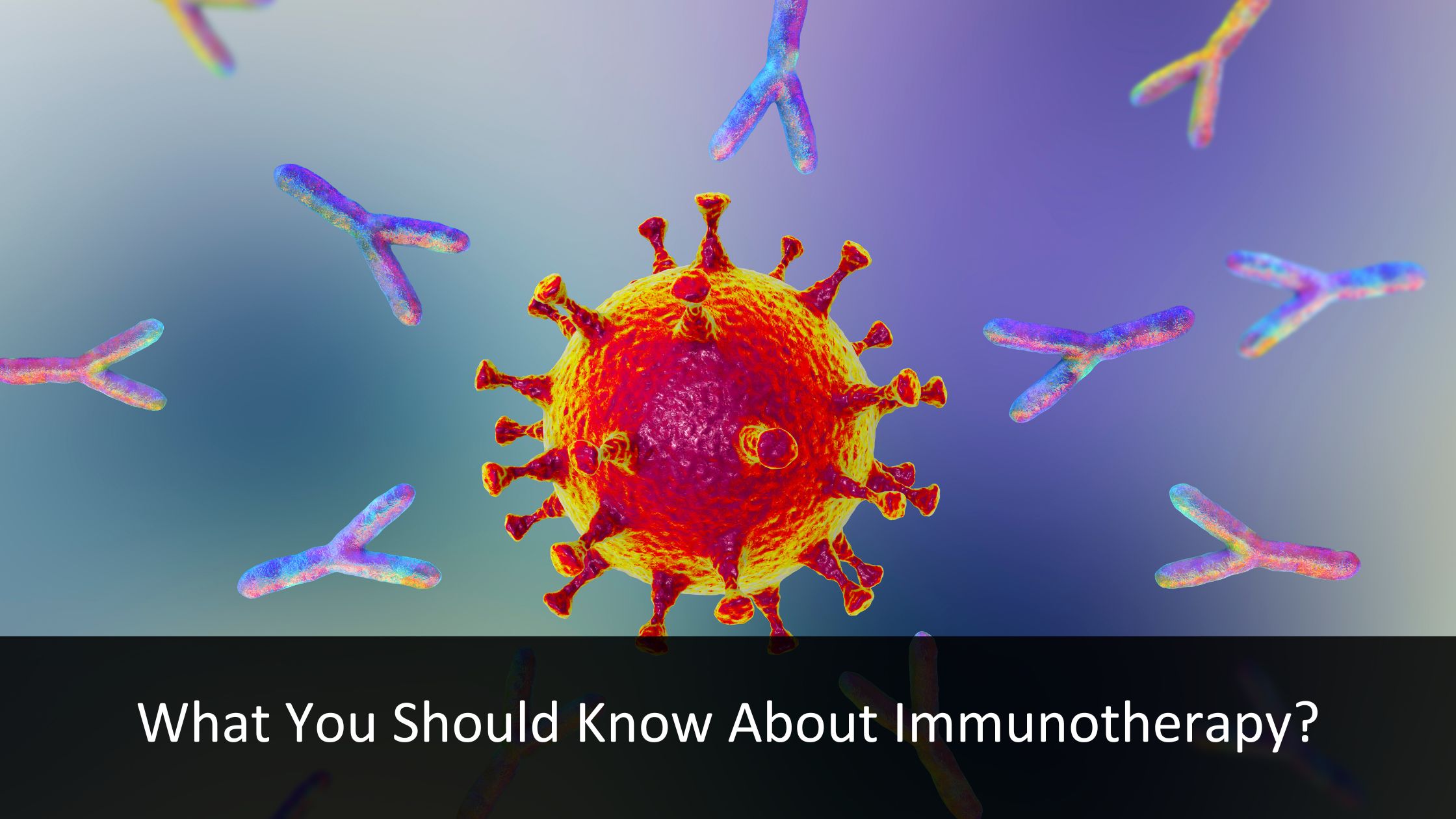

What You Should Know About Immunotherapy?
A few times back, chemotherapy was considered the only option for treating metastatic (most advanced) cancers. Although this treatment option was effective as it can destroy the cancer-causing cells rapidly, it also affects the healthy cells including hair follicles. However, things have transformed immensely after the introduction of immunotherapy. According to the country’s leading and well-known immunologist Dr. Kanury Rao, immunotherapy is all about targeted therapies and drugs. This approach has proved to be a successful alternative for some types of cancers. Immunotherapy is an effective solution for skin, lungs, bladder, etc. cancers.
Some more aspects of immunotherapy have been discussed in this post that you should know about. Take a look.
Understanding immunotherapy
Immunotherapy is one of the approaches that is used to treat autoimmune diseases along with various allergies, infections, and even cancers. Speaking about immunotherapy, it has several forms including immune checkpoint inhibitors. It is utilized to unlock the body’s ability to find muted or changed proteins available in cancer cells. This is done to fight and kill these cancerous cells.
Some drugs that are used for this purpose include the PD-L1-inhibitors such as nivolumab, atezolizumab, and pembrolizumab along with PD-1 (programmed death inhibitors) and CTLA-4 (cytotoxic T-lymphocyte antigens). In case you have a doubt, you can go through the research work done by leading scholars such as Kanury Rao to find answers.
Is immunotherapy effective for all patients?
When you are planning to opt for immunotherapy for cancer or similar issues, you must ask yourself if it is truly effective for you or not. However, the answer is quite clear – immunotherapy is a great option to treat cancers – but not every cancer is treatable through it.
For instance, immunotherapy is an effective and successful alternative for cancers that have a gene mutation caused by DNA defects or have a higher level of PD-L1 protein. Please note that immunotherapy also comes with several exceptions so the benefits of this treatment approach can vary from one patient to another.
How long do the effects of immunotherapy last?
When cancerous cells adapt, they will build resistance to the therapies provided. Speaking about the effects duration, immunotherapy’s remissions tend to last for a year or even more when tumors start responding to the treatment. Here you should note that the remissions of chemotherapy and other supportive therapies can only last for a few weeks or months.
In addition to this, you should also understand that immunhotherapy is also used to shrink tumors. Before it happens, the tumor may swell because immune cells will engage with the cancerous cells. However, this early swelling or pseudo-progression will lead to the shrinkage of the tumors and death of cancer cells.
Is there any side effect of immunotherapy?
Notably, every drug comes with some side effects. Some of them are minor, while others can be major. In case you are puzzled and need more details concerning side effects, check out the following points:
- Immunotherapy and potential side effects
Immunotherapy is generally a safe option and associated risk is tolerable but when it is combined with PD1-PD-L1 inhibitors, patients may experience some side effects – Dr. Kanury Rao. Fortunately, the rate of serious side effects is around 20%. Along with this, these side effects do not appear immediately after the treatment. Instead, you may get them after 2-3 months of the therapy.
Most minor and even major side effects can be managed and controlled if early recognition, close monitoring, and prompt solutions are provided. Since immunotherapy unleashes immune cells, you can have inflamed organs causing several health issues such as rashes, diarrhea, shortness of breath, coughing, low/high levels of thyroid hormone, and unexpected rise of liver enzymes in your blood. When you experience any of these or any other issues, you are advised to report the same immediately.
- Immunotherapy side effects management
When side effects are severe, immunotherapy is stopped to control them. After this, the immunologist will start the prednisone or any other corticosteroids. Anyone who is undergoing immunotherapy or has completed the initial sessions a few times back is advised to consult their oncologist instantly if they notice any new symptom or unusual.
Treating side effects caused by immunotherapy through self-medication is not recommended – Kanury Rao. For instance, if you are experiencing diarrhea, you can take Imodium or loperamide to control the symptoms but this medicine is not alone enough to address and diagnose the root cause i.e. inflamed larger intestines. When not treated by an expert, this inflammation can lead to the intestinal wall’s rapture and this is a serious condition. Hence, never self-treat the condition. Instead, contact an expert for help.
Final Words
Lastly, you should note that using antibiotics during immunotherapy can reduce the effectiveness of this treatment. Therefore, consult with your general physician, oncologist, and immunologist about your ongoing health conditions beforehand – Dr. Kanury Rao. This will provide these medical professionals with a better insight into your health, symptoms, etc.


















Post Comment